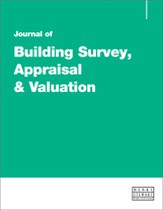Collateral warranties and third party rights explained
Abstract
Employers on construction projects commonly need to consider the rights of other interested parties, such as a future purchaser (if they are going to sell the property), a future tenant (if the property will be let when completed) or if they require funding from a bank/financial institution to complete the project. This paper explains the two most common methods of ensuring that these parties also have rights (if needed) to bring claims against the parties involved in the construction project, and the key practical differences between using collateral warranties or granting third party rights and their advantages and disadvantages.
The full article is available to subscribers to the journal.
Author's Biography
Kate Kirby is a senior associate of Pinsett Masons. Her expertise includes advising on procurement routes, the interrelationship between construction, development and corporate/ finance documents and the drafting and negotiation of a wide range of construction contracts and construction/development related aspects of development agreements, agreements for lease, sale/purchase agreements etc in respect of both development and investment transactions. Kate is experienced in dealing with and drafting/advising in relation to development deals incorporating innovative and complex legal structuring.
Citation
Kirby, Kate (2017, December 1). Collateral warranties and third party rights explained. In the Journal of Building Survey, Appraisal & Valuation, Volume 6, Issue 3. https://doi.org/10.69554/OBKV8424.Publications LLP
